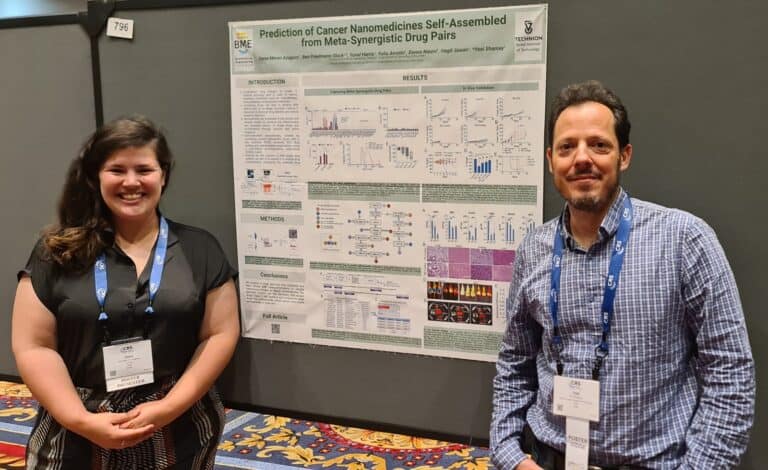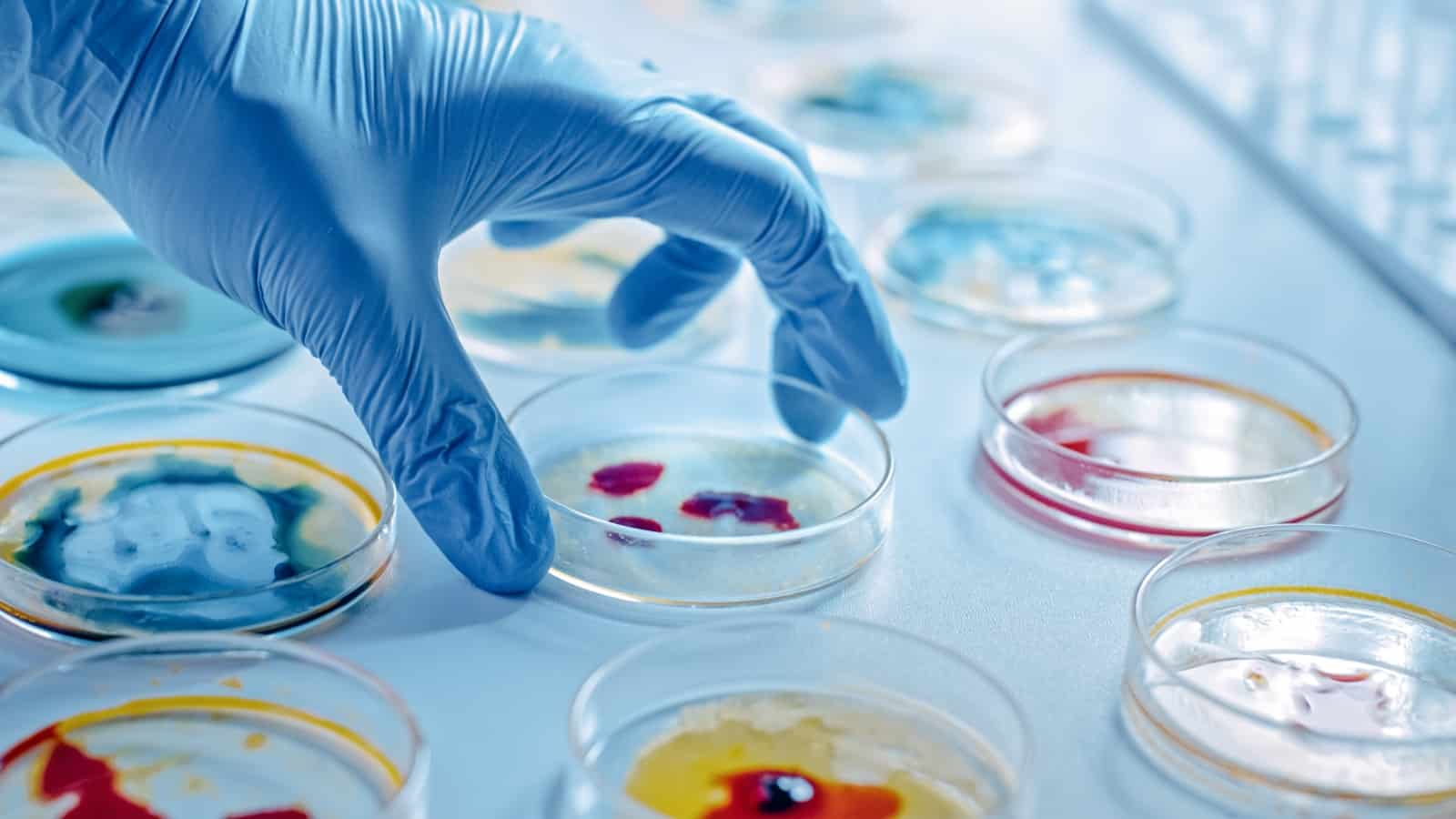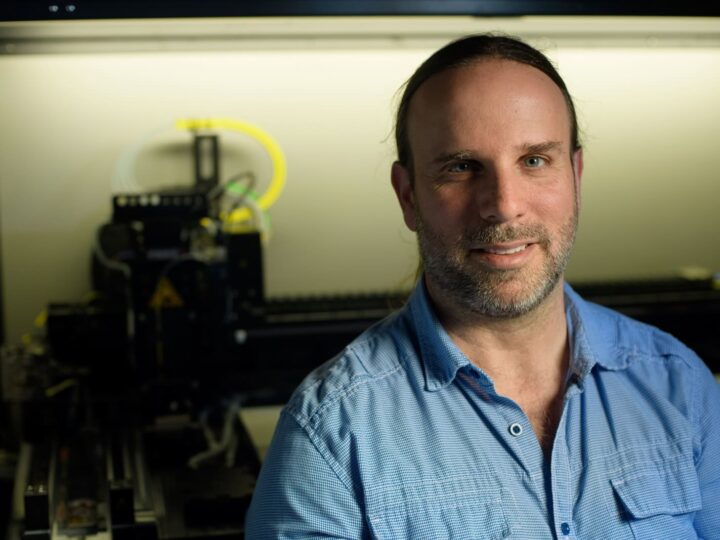Researchers have developed a pioneering AI “matchmaker” that pairs together existing cancer drugs for use in nanomedicine.
Prescribing a combination of two or more medications is already an established practice – known as combination therapy — that can prove highly effective.
But a team at Technion – Israel Institute of Technology, in Haifa, has gone beyond simply identifying separate medications that will work well together.
These scientists have developed technology that singles out drug pairs whose molecular structure allows them to join together chemically as nanoparticles, measuring just a millionth of a millimeter. Their findings are published in theJournal of Controlled Release.
Administering medicines as nanoparticles – or nanomedicines – has many advantages, allowing doctors to use lower doses, target specific cells and minimize side effects.
The artificial intelligence tool developed at the Technion trawls published articles on existing cancer treatments, gathering information that allows it to predict pairs of drugs that will work well together and, crucially, that are able to chemically assemble into combined nanoparticles.

Prof. Yosi Shamay describes the new approach as a “synergy of synergies” or a “meta-synergy.”
The first synergy is the combination of two drugs so that their combined effect is greater than using each of them in isolation.
The second synergy is identifying which of these drugs pairs can be used in nanomedicine, bringing a whole array of new benefits.
The AI tool has so far proposed 1,985 possible nanomedicine drug combinations to treat 70 types of cancer.
One example is combining Bortezomib (a blood cancer drug) and Cabozantinib (a liver, kidney and thyroid cancer drug) as treatment for head and neck cancer. This combination has proven effective and caused fewer side effects than using either of the drugs individually.

Standard drug combinations combat a tumor more effectively than they would do individually and may prevent the tumor from developing resistance to treatment.
Above and beyond

Nanomedicine combinations go above and beyond. They target cancer cells more precisely, are more successful at fighting tumors, require smaller doses, are less toxic, and minimize side effects.
“The development of meta-synergy on the nanometric level is a very complex challenge,” said Shamay.
“It necessitates the introduction of [at least] two drugs simultaneously into the same delivery system that would lead them to the desired destination in the body,” he said.
“Our research has shown, both in a computational demonstration and in live experiments, that the combination we proposed indeed leads the drugs to the tumor and releases them there — and that this therapy is very effective in treating the disease.”
The study, conducted at the Shamay Lab for Cancer Nanomedicine and Nanoinformatics, was led by PhD student Dana Meron Azagury, whose focus was on the biology and chemistry side of the research, and master’s student Ben Friedmann, who developed the AI model.
















